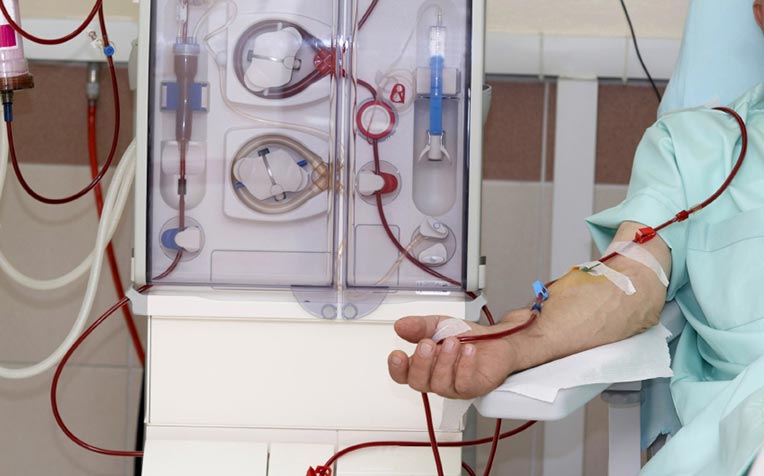
Kidney failure patients may be able to find a match among incompatible living donors, thanks to a new treatment protocol.
When a kidney failure patient is found to have high levels of antibodies, a transplant is usually not a treatment option. This is the case even if he has donors willing to give him an organ.
But renal doctors at Singapore General Hospital (SGH), a member of the SingHealth group, have recently developed a new treatment plan that makes a transplant possible for people who are likely to reject a new kidney because of their high antibody count.
The treatment protocol essentially removes the antibodies that target the donor’s cells, allowing the kidney to be transplanted safely.
First case of kidney transplant under new procotol in 2013
SGH doctors performed the first such transplant last year on a woman in her 30s. Her condition and health continue to be monitored closely, but the transplant patient has become well enough to return to full-time work.
“Our first case has given us a lot of optimism. It was an extremely difficult case because the patient had very high levels of antibodies to reduce. But the protocol that we developed allowed her to undergo transplantation safely,” said Dr Terence Kee, Senior Consultant, Department of Renal Medicine, and Director, Renal Transplantation Programme, SGH, a member of the SingHealth group.
“This type of transplant is a last resort treatment and isn’t for everyone, but its success has opened the door to those patients in a similar situation,” he added.
People with end-stage renal failure need regular kidney dialysis to remove waste and excess water from the body, or a transplant. A new working kidney gives the patient a good shot at a normal life.
Before a transplant can take place, a donor has to be found. If the patient doesn’t have a living donor candidate, he will have to join the queue for an organ from a deceased donor. Whichever option, a match has to be found as otherwise, the transplanted organ will be rejected.
Kidney transplant- How are donors and recipients matched?
“In transplantation, compatibility between a donor and a recipient is determined by a special protein called the human leukocyte antigen or HLA, which is found on the surface of our cells and tissues,” said Dr Kee.
The more differences there are between the donor and the recipient in terms of the kind of HLA on their cells, the greater the risk of organ rejection. “A transplanted organ is rejected when the body develops antibodies against the recipient’s HLA because of their differences,” said Dr Kee.
The antigen acts as a form of unique identity; cells from another person will not be recognised and hence deemed as foreign or as invading germs.
Antibodies are generated to protect the body against foreign substances, such as viruses and bacteria. Antibodies, which can develop after pregnancies, blood transfusions and surgeries, may be directed towards the donor’s HLA, which in turn can cause a rejection of the transplanted kidney.
Before a transplant can be carried out, potential donors have to undergo tests to find the closest tissue match with the recipient.
A match lessens the chance of the transplanted organ being rejected. Aside from blood and tissue compatibility, it is important that the patient doesn’t have antibodies formed against the donor’s cells. When this happens, the transplant is usually a no-go.
Kidney transplant - Waiting for the right one

Ref: N18
Contributed by


















 Get it on Google Play
Get it on Google Play